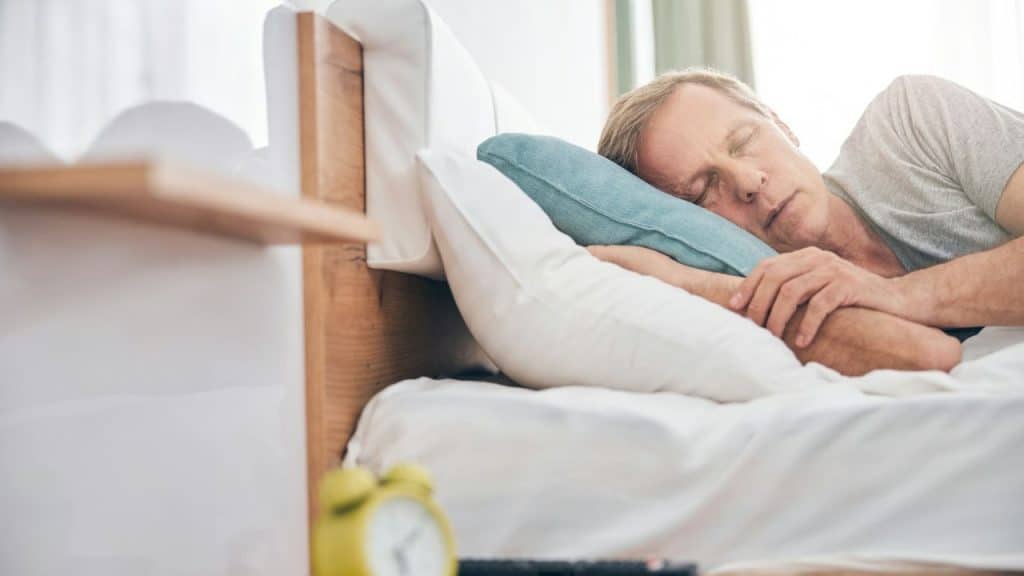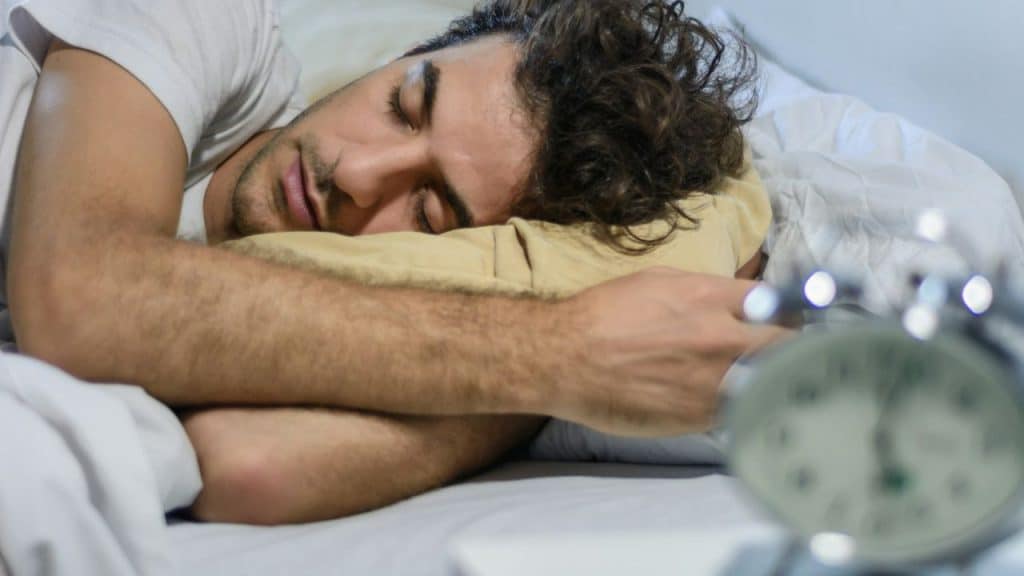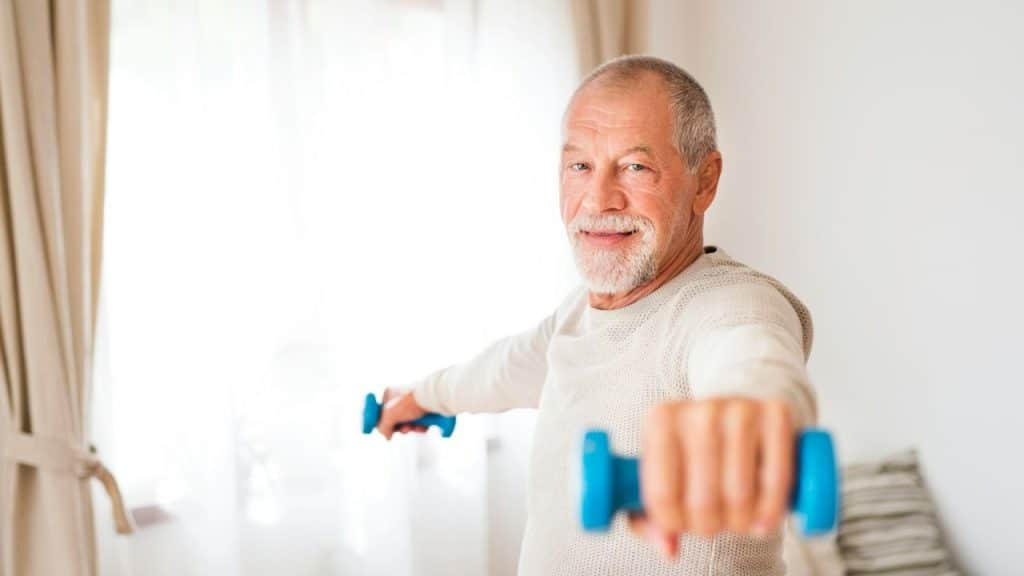
You shouldn’t have to choose between feeling exhausted or relying on pills to sleep. If you’re a busy guy juggling deadlines, family, and stress, it’s no surprise your brain won’t shut off at night. Sleep isn’t just rest. It’s your fuel, your recovery, your edge. If you’ve been running on fumes lately, it’s time to take back control without turning your whole life upside down.
Set a Consistent Sleep Schedule

Your body doesn’t like surprises when it comes to rest. Going to bed at random hours throws off your internal clock and makes quality sleep harder to come by. The fix is simple: choose a regular bedtime and wake-up time, then stick to it every day. This helps your brain anticipate sleep and respond accordingly. The more consistent you are, the easier falling asleep becomes.
Mind What You Eat and Drink

A greasy meal or nightcap might feel like a reward, but they come with a cost. Heavy dinners, caffeine, and alcohol can all interfere with how your body winds down. They disrupt sleep cycles, trigger heartburn, or keep your system on high alert. If you’re looking for ways to sleep better naturally, start by giving your body a cleaner break before bedtime. Avoid stimulants and let digestion settle first.
Create a Restful Environment

Your room should help you sleep, not fight against it. Noise, lights, and an uncomfortable mattress make it harder for your brain to fully relax. Aim for cool temperatures, blackout curtains, and quiet surroundings. Even small tweaks can make a difference, such as using a white noise app or switching to a better pillow. Treat your bedroom like a recovery zone, not just a place to crash.
Establish a Wind‑Down Routine

If you go from full throttle to lights out, your body won’t follow. You need a ritual that signals the end of the day. That could be reading, taking a warm shower, or listening to calming music. It doesn’t have to be fancy, just something consistent. This transition helps your brain shift gears and prepare for sleep the right way.
Limit Screen Time Before Bed

Screens blast your eyes with blue light, which tells your brain to stay awake. That Netflix episode or scrolling through email tricks your system into thinking it’s still daytime. Cut off screen exposure at least 30 to 60 minutes before bed. Use that time for something quiet and low-stimulus instead. Your sleep will thank you for it.
Limit Daytime Naps

A nap can be a useful energy boost, but it comes with boundaries. If you nap too late or too long, it can steal from your nighttime rest. Keep it under 30 minutes and try not to nap past midafternoon. That way, you get the refresh without messing up your sleep window. It’s about timing, not just fatigue.
Get Regular Physical Activity

When your body moves, your sleep improves. Moderate exercise reduces stress, burns off tension, and helps you fall asleep faster. But don’t schedule your workout too close to bedtime. Give yourself a few hours to cool off and wind down. You don’t need a gym membership—just consistent movement during the day.
Expose Yourself to Natural Light

Sunlight is one of the strongest signals for your body’s internal clock. Getting daylight in the morning can help reset your rhythm and make it easier to fall asleep later. Even a short walk outside before work helps. If you work in dim spaces, open the blinds or step outside during breaks. Light exposure during the day supports better sleep at night.
Optimize Your Diet

What you eat affects how you sleep. Late heavy meals or spicy food can keep your body on alert when it should be shutting down. Try to eat your last big meal a few hours before bed. Some foods like tart cherries or bananas have sleep-friendly properties. Pay attention to how your dinner habits show up in your sleep cycle.
Manage Stress and Worries

You can’t sleep well with a head full of to-dos and what-ifs. If you’re lying there running through tomorrow’s problems, try dumping them onto paper. A short to-do list or journal entry can quiet the noise. Stress is one of the biggest blockers for men trying to sleep without pills. Tidy up your thoughts before bed and give yourself permission to shut it down.
Try Relaxation Techniques

Calming your body doesn’t take an hour-long routine or special gear. Start with slow breathing, progressive muscle relaxation, or a short meditation. These are simple ways to interrupt racing thoughts and ease your system toward rest. They take practice, but the results are real. Give your brain something gentle to focus on, and the rest follows.
Consider Cognitive Behavioral Therapy for Insomnia

CBT-I is a proven way to treat insomnia without medication. It works by helping you unlearn unhelpful habits and shift the way you think about sleep. A lot of men assume poor sleep is just part of adulthood, but it doesn’t have to be. CBT-I teaches you how to rebuild your relationship with rest and create habits that hold up long-term.
Limit Alcohol and Nicotine

Alcohol may knock you out fast, but it wrecks the second half of your sleep. It can lead to shallow rest and early wakeups. Nicotine is even worse since it’s a stimulant. If you’re using either before bed, your sleep quality is taking a hit whether you feel it or not. Cut them out of your evening routine for better recovery overnight.
Use Your Bed Only for Sleep (and Sex)

If you’re answering emails or watching TV in bed, your brain won’t associate it with rest. Over time, this creates confusion around when it’s time to shut down. Keep the bed for sleeping and intimacy only. If you’re wide awake for more than 20 minutes, get up and do something relaxing in low light. Return only when you feel drowsy again.
Monitor Your Caffeine Intake

Caffeine has a longer shelf life in your body than most people realize. That afternoon energy boost can still be active well into the evening. If you’ve been struggling to fall asleep, try cutting off caffeine after lunch. You may not notice it right away, but your body will respond with more predictable rest.
Address Underlying Conditions and Seek Help

Sometimes the problem isn’t behavioral—it’s medical. Sleep apnea, restless leg syndrome, or long-term insomnia need more than habit changes. If you’ve tried everything and still feel off, it’s time to talk to a doctor. There are solid treatments that don’t involve sleep medication. Don’t settle for poor rest. You deserve to wake up feeling like yourself again.






Ask Me Anything